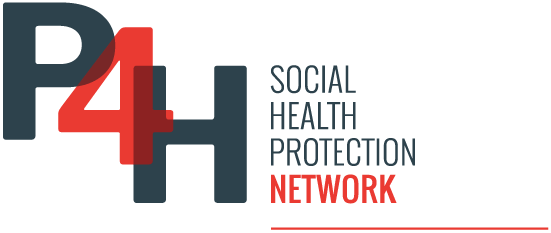Source: P4H Country Focal Point (GIZ)
- A major activity was the formulation of the third Health Strategic Plan 2016-20, a consultative process that commenced at the start of this calendar year. Attention was paid to carefully integrate elements of the Health Financing Policy that can be realised during the concerned period. The Strategy is 90% complete and ready for consideration by civil society and public and private health care providers.
- In parallel and complementary to the formulation of the third Health Strategic Plan, several development partners consider to financially support the implementation of this Strategy by use of pooled funding. Reflecting Cambodian peculiarities, this pooled funding approach isn’t termed SWAp (Sector-Wide Approach) as in other countries but SWiM –Sector Wide Implementation– due to a considerable degree of earmarked funding. The Health Financing Policy is to be an important guide for the SWiM approach.
- Despite prominently featuring in the design of the SWiM approach, the Health Financing Policy remains stuck in the Ministry of Economy and Finance due to two events. The first is the requirement to provide a cost estimation concerning the implementation of the interventions specified in the document. To this end, a P4H-funded a costing exercise was conducted for the informal sector population. The exercise takes a five-year perspective and happened in collaboration with ILO. The respective document is expected for the end of August. Second, the Ministry of Economy and Finance is developing a framework outlining the institutional arrangements and legal and financial requirements for the country’s social security system.
- It appears that social health insurance may commence soon for formal private sector employees (companies with at least 8 employees) and that such arrangements may also be instigated for civil servants and military and police forces. Although the draft Health Financing Policy foresees three institutions to manage an equal number of schemes (for civil servants; private formal sector employees; and informal sector population) preference seems to go to one institute due to limited financial resources and available technical capacity in the country. This requires an adjustment of the draft Policy.
0
0
1
342
2700
GIZ
44
11
3031
14.0
Normal
0
false
false
false
EN-US
JA
X-NONE
/* Style Definitions */
table.MsoNormalTable
{mso-style-name:”Table Normal”;
mso-tstyle-rowband-size:0;
mso-tstyle-colband-size:0;
mso-style-noshow:yes;
mso-style-priority:99;
mso-style-parent:””;
mso-padding-alt:0cm 5.4pt 0cm 5.4pt;
mso-para-margin:0cm;
mso-para-margin-bottom:.0001pt;
mso-pagination:widow-orphan;
font-size:12.0pt;
font-family:Cambria;
mso-ascii-font-family:Cambria;
mso-ascii-theme-font:minor-latin;
mso-hansi-font-family:Cambria;
mso-hansi-theme-font:minor-latin;
mso-ansi-language:EN-US;}
- However, prior to embarking on a revision of the document more clarity concerning preferred directions by the new stakeholders is required. This group of stakeholders has recently been enlarged by members of Commission VIII of the National Assembly, in charge of Health Care, Work, Social Affairs, and Women Affairs. For sure, universal health coverage is on many agendas.

